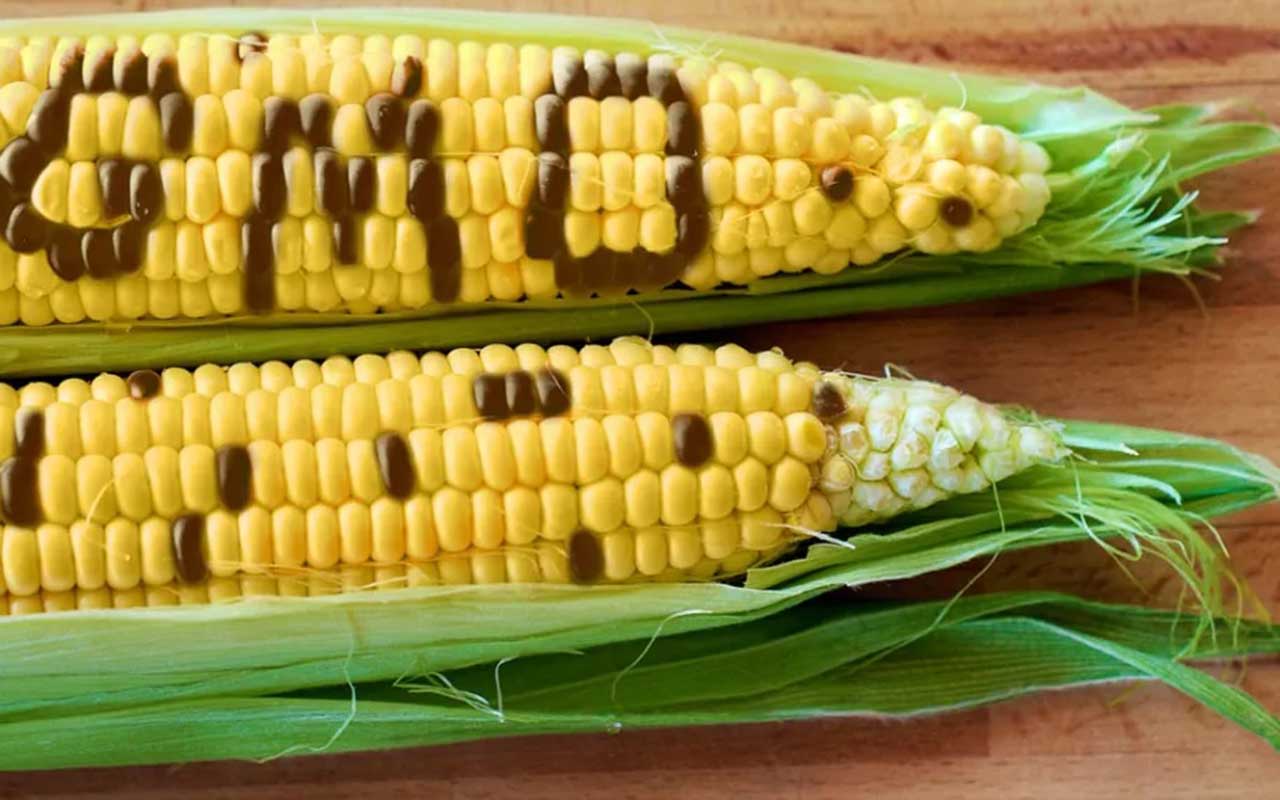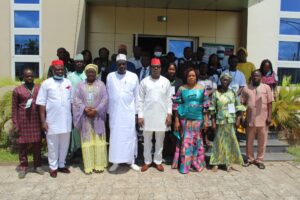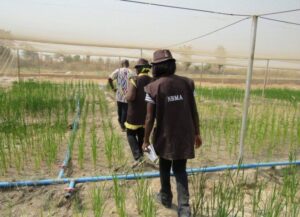
The Federal Government to Begin Labelling of Genetically Modified (GM) Crops for Transparency and Public Confidence
- Nigeria News
- 01.09.2025
- 1 Comment
- 65

genetically modified (GM) crops. This policy seeks to enhance transparency, traceability, and public confidence in Nigeria’s food systems while aligning with international best practices in biotechnology and agriculture.
The move comes as Nigeria continues to embrace biotechnology to address food insecurity, climate change, and agricultural productivity challenges. However, growing concerns about the safety and ethical considerations surrounding GM foods have necessitated a regulatory framework that places consumers at the heart of decision-making.
developing drought-resistant and pest-tolerant crops, critics argue that consumers should have the right to know what they are eating.
By introducing clear labelling regulations, the Federal Government is ensuring that Nigerians can make informed food choices, promoting accountability among producers and
distributors in the food supply chain.
- Transparency: To provide consumers with accurate information about the content of their food.
- Traceability: To ensure that GM products can be tracked from farm to table.
- Public Confidence: To build trust between consumers, farmers, and regulators.
- International Standards: To align Nigeria’s food labelling system with global best practices.
- Consumer Rights: To empower citizens to make informed dietary decisions.
- National Biosafety Management Agency (NBMA): Responsible for regulating biotechnology practices in Nigeria.
- National Agency for Food and Drug Administration and Control (NAFDAC): Oversees food safety and compliance with labelling standards.
- Federal Ministry of Agriculture and Food Security: Ensures proper integration with Nigeria’s agricultural policies.
- Standards Organisation of Nigeria (SON): Develops guidelines for packaging and labelling.

- Increased Consumer Confidence: Nigerians will have greater trust in the food supply system.
- Market Access: Compliance with international standards will open opportunities for Nigerian agricultural exports.
- Public Health: Consumers will be able to avoid allergens or specific GM products if they wish.
- Environmental Protection: Traceability helps monitor potential ecological impacts of GM farming.
- Informed Choices: People will have the right to choose between organic, conventional, and GM food products.
- Cost of Implementation: Farmers and food companies may face increased costs in compliance and packaging.
- Consumer Misunderstanding: Some people may misinterpret labels and wrongly assume all GM foods are harmful.
- Enforcement: Ensuring compliance across Nigeria’s vast agricultural sector may be difficult.
- Global Controversies: International debates on GM food safety may influence public perception in Nigeria.
The Federal Government has assured that continuous public education campaigns will be rolled out to address misinformation and enhance awareness.
- European Union: Requires mandatory labelling of all GM foods and animal feed.
- United States: Introduced the National Bioengineered Food Disclosure Standard in 2022, requiring food manufacturers to disclose GM ingredients.
- Brazil and Argentina: Leading GM crop producers with mandatory labelling systems.
- South Africa: The first African country to adopt mandatory GM food labelling.
By joining these nations, Nigeria positions itself as a leader in biosafety regulations in Africa, setting an example for other countries in the region.

- Farmers: Some farmers welcome the move, saying it will boost consumer trust, while others worry about additional costs.
- Food Companies: Manufacturers are calling for a phased implementation to allow adequate preparation.
- Health Experts: Nutritionists applaud the decision as a win for consumer rights and public health.
- Civil Society: NGOs emphasize the importance of strict enforcement and transparency.
encourage innovation, strengthen food safety standards, and promote agricultural exports to regions with strict biosafety rules.
Additionally, the labelling initiative is aligned with the government’s commitment to achieving the United Nations Sustainable Development Goals (SDGs), particularly Goal 2 (Zero Hunger) and Goal 12 (Responsible Consumption and Production).
While challenges remain in implementation and public perception, the initiative promises to enhance transparency, traceability, and trust in Nigeria’s food systems. As the country continues its journey towards food security and agricultural modernization, such policies will be critical in shaping a safer and more informed future for all Nigerians.








1 Comments
[…] The Federal Government to Begin Labelling of Genetically Modified (GM) Crops for Transparency and Pu… […]